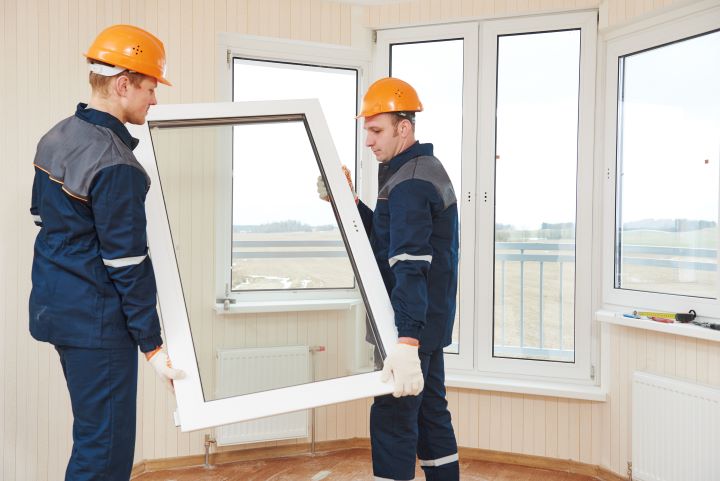Guide to Replacing Your Home's Windows
When it comes to glass replacement services, finding a reliable solution can make a noticeable difference in safety and appearance. Understanding the options available and choosing professional assistance ensures your windows and surfaces are properly handled with care and precision.

Understanding Residential Window Glass Replacement
Residential window glass replacement involves removing old or damaged glass from window frames and installing new panes. Homeowners typically pursue this option when dealing with cracked glass, condensation between double panes, or decreased energy efficiency. The process can range from simple single-pane replacements to full frame installations, depending on the extent of damage and your renovation goals.
Modern window glass comes in various types, including single-pane, double-pane, triple-pane, and specialty options like low-emissivity (Low-E) glass. Double-pane windows with argon or krypton gas fill provide superior insulation compared to older single-pane models. Low-E coatings reflect infrared light, keeping heat inside during winter and outside during summer, which can significantly reduce heating and cooling costs.
The replacement process typically begins with an assessment of your current windows. A professional will measure the openings, evaluate frame condition, and recommend appropriate glass types based on your climate, budget, and energy efficiency goals. Installation usually takes a few hours per window, though full-frame replacements require more time and labor.
How to Find Certified Glass Replacement Experts
Working with certified glass replacement experts ensures quality workmanship and proper installation. Certified professionals have undergone training in industry standards, safety protocols, and installation techniques. They understand building codes, weatherproofing requirements, and manufacturer specifications that protect your investment.
When searching for qualified installers in your area, look for certifications from organizations like the National Glass Association or manufacturer-specific training programs. Many reputable companies employ installers certified by window manufacturers such as Andersen, Pella, or Marvin. These certifications demonstrate expertise with specific product lines and installation methods.
Request multiple quotes and verify credentials before hiring. Check for proper licensing, insurance coverage, and customer reviews. Ask about warranties on both materials and labor. Established companies typically offer workmanship guarantees ranging from one to ten years, while manufacturer warranties on windows themselves can extend 20 years or more. Don’t hesitate to request references from recent projects similar to yours.
Handling Broken Window Glass Replacement
Broken window glass replacement requires immediate attention for security and safety reasons. Whether caused by storm damage, accidents, or attempted break-ins, damaged windows leave your home vulnerable to weather, pests, and intruders. Emergency glass replacement services are available in most areas for urgent situations.
The replacement approach depends on the type of break and window construction. Single-pane windows are relatively straightforward to replace, often completed within hours. Double-pane or insulated glass units require replacing the entire sealed unit rather than individual panes. If the frame remains intact and undamaged, glass-only replacement is typically more cost-effective than full window replacement.
Temporary measures like boarding or plastic sheeting can protect your home until professional repairs are completed. However, these are short-term solutions. Schedule professional replacement as quickly as possible to restore security and energy efficiency. Many glass companies offer same-day or next-day service for broken window emergencies, particularly for ground-floor or easily accessible windows.
Cost Considerations and Pricing Insights
Window replacement costs vary widely based on window size, glass type, frame material, and installation complexity. Understanding typical price ranges helps you budget appropriately and evaluate quotes from contractors.
For basic residential window glass replacement, homeowners can expect to pay between $200 and $600 per window for standard double-hung windows with double-pane glass. Larger windows, specialty shapes, or premium glass options increase costs. Full-frame replacement, which includes removing and replacing the entire window unit and frame, typically ranges from $400 to $1,200 per window.
Broken window glass replacement for emergency situations may include rush fees, adding $100 to $300 to standard pricing. Triple-pane windows with advanced Low-E coatings and gas fills can cost $600 to $1,500 per window installed. Custom sizes, architectural styles, or historic restoration work command premium pricing, sometimes exceeding $2,000 per window.
| Service Type | Average Cost Range | Typical Timeframe |
|---|---|---|
| Single-pane glass replacement | $150 - $400 | 1-2 hours |
| Double-pane glass replacement | $200 - $600 | 2-4 hours |
| Full-frame window replacement | $400 - $1,200 | 4-8 hours |
| Emergency broken glass repair | $300 - $900 | Same or next day |
| Triple-pane premium windows | $600 - $1,500 | 4-8 hours |
Prices, rates, or cost estimates mentioned in this article are based on the latest available information but may change over time. Independent research is advised before making financial decisions.
Labor typically accounts for 30 to 50 percent of total replacement costs. Geographic location significantly impacts pricing, with urban areas and regions with higher costs of living seeing elevated rates. Seasonal demand also affects pricing, with spring and fall being peak seasons for window replacement projects.
Energy Efficiency and Long-Term Savings
Investing in quality window replacement delivers long-term energy savings that can offset initial costs. According to industry estimates, replacing single-pane windows with Energy Star certified double-pane models can reduce heating and cooling costs by 12 to 33 percent annually, depending on climate and existing window condition.
Low-E glass coatings improve thermal performance without significantly increasing costs. These microscopic metallic layers are virtually invisible but reflect heat back into your home during winter and block solar heat gain during summer. When combined with argon gas fills between panes, Low-E windows provide insulation values comparable to walls in some cases.
Many utility companies and government programs offer rebates or incentives for energy-efficient window replacements. Check with your local utility provider or visit the Database of State Incentives for Renewables and Efficiency to identify available programs in your area. These incentives can reduce net costs by several hundred dollars per project.
Choosing the Right Window Materials and Styles
Window frame materials significantly impact performance, maintenance requirements, and aesthetics. Vinyl frames offer excellent energy efficiency and low maintenance at moderate cost. Wood frames provide classic beauty and good insulation but require periodic painting or staining. Fiberglass frames deliver superior strength and thermal performance at premium prices. Aluminum frames suit commercial applications but conduct heat readily, making them less ideal for residential energy efficiency.
Window styles should complement your home’s architecture while meeting functional needs. Double-hung windows remain the most popular choice for traditional homes, offering easy cleaning and ventilation control. Casement windows provide excellent seals and unobstructed views. Sliding windows work well for wide openings, while awning windows excel in bathrooms or areas requiring ventilation during rain.
Consider glass tinting or decorative options for privacy, UV protection, or aesthetic enhancement. Frosted, textured, or stained glass adds character to entryways and bathrooms. Tinted glass reduces glare and fading of interior furnishings in sun-exposed rooms. These customizations typically add 15 to 40 percent to base window costs but provide lasting functional and aesthetic benefits.
Conclusion
Replacing your home’s windows represents a significant home improvement investment that pays dividends in comfort, energy savings, and property value. Whether you need residential window glass replacement for aging windows, certified glass replacement experts for quality installation, or broken window glass replacement for emergency repairs, understanding your options and costs enables better decision-making. Research local providers, compare quotes, verify certifications, and select windows appropriate for your climate and budget. With proper installation and quality materials, new windows can serve your home efficiently for decades.




